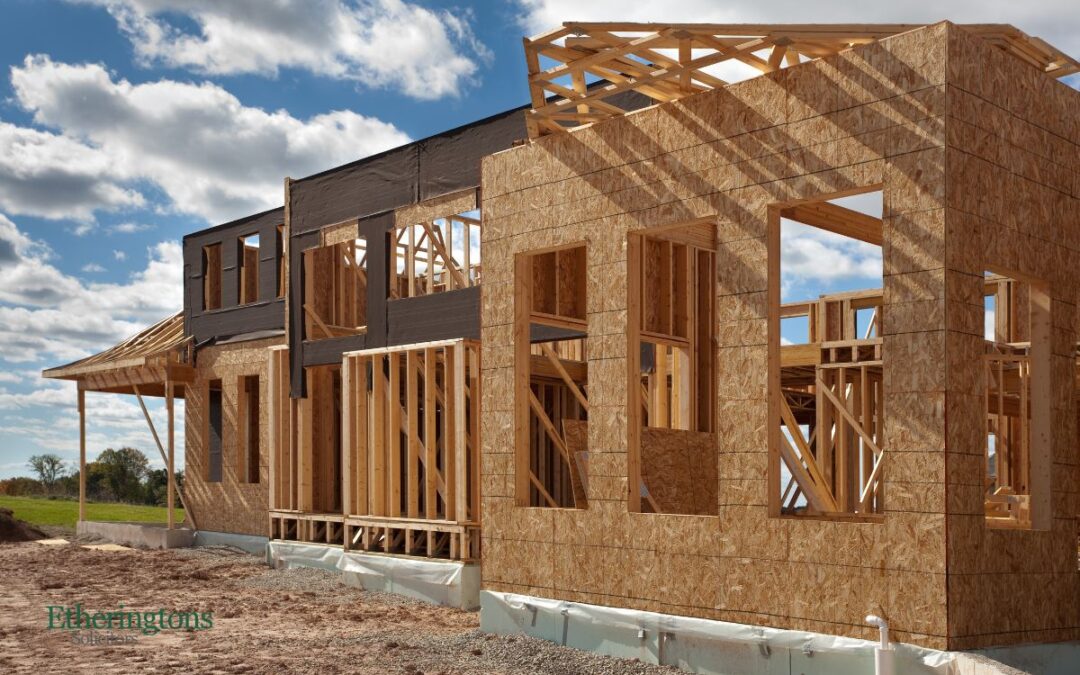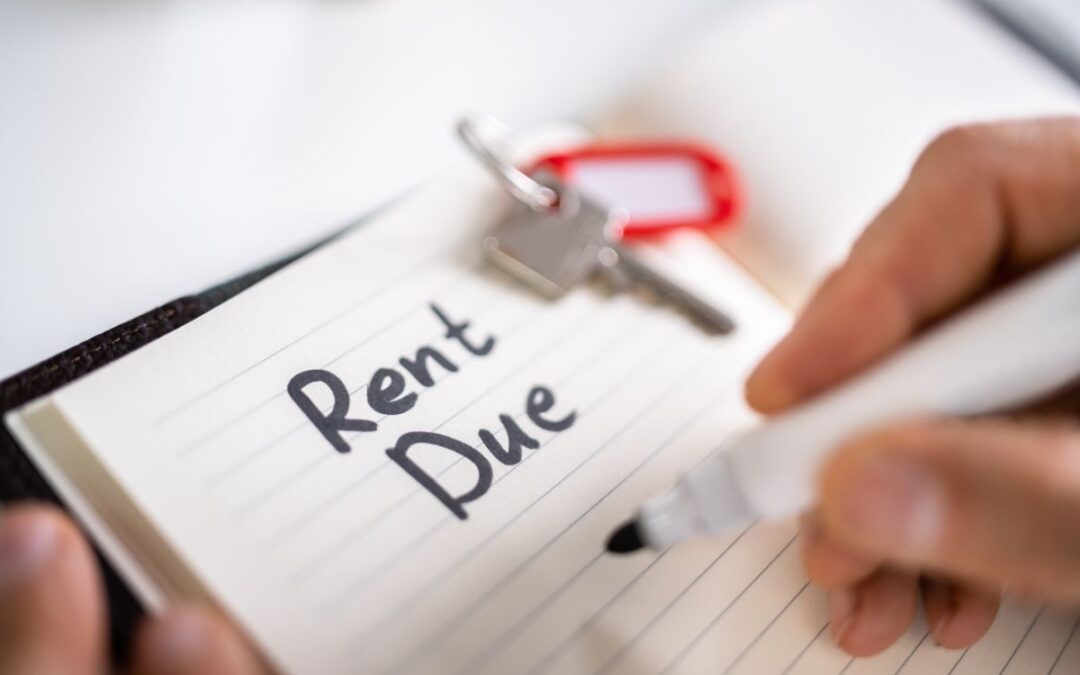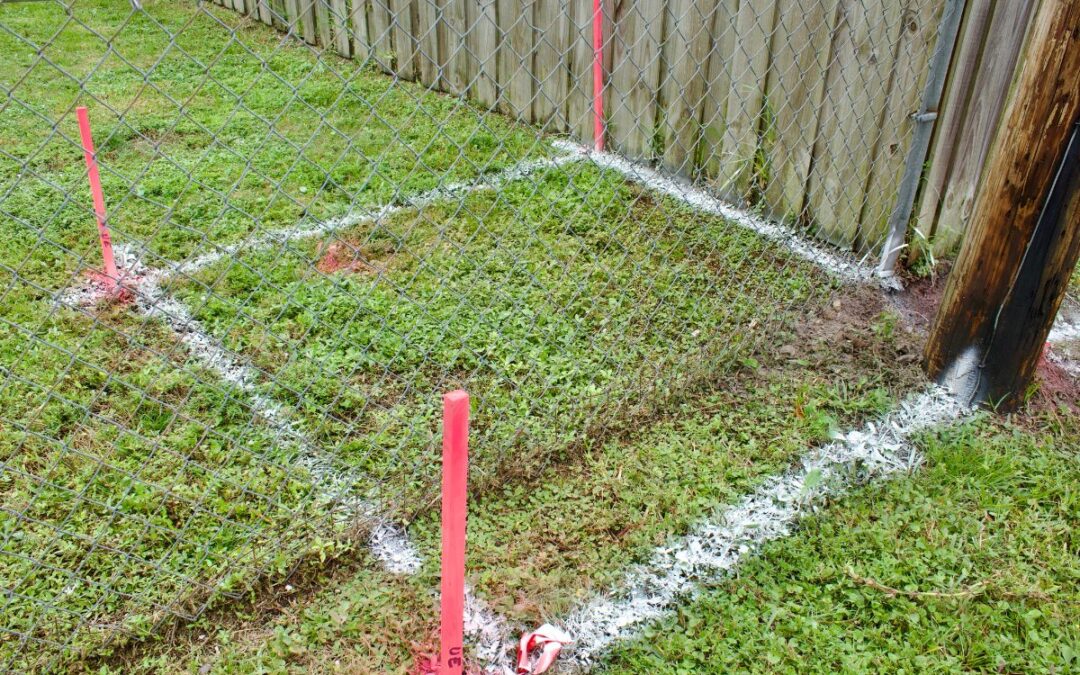
Jul 5, 2024 | Property Law
Upon undertaking residential construction, ensuring adequacy and enforceability of the contract is paramount. By taking adequate care to review the residential construction contract provided by your builder/tradesperson, building disputes can be avoided throughout the construction and you can ensure your rights are being upheld.
All projects priced over $5000 and in some instance’s projects over $1000, must have a written contract. This may still apply if the project price is unknown, but can be estimated by using the reasonable market cost of labour and materials.
Type of Contract
The type of residential construction contract issued is dependent on the size of the project: small or large
Small Contracts:
Governed by s7AAA of the Home Building Act 1989 (the Act), small form contracts are issued for projects valued between $1000 – $20,000.
Strict requirements apply regarding what must be included. Importantly it must include, the party names, the contractor license number, the job description and specifications and the contract price.
Large Contracts:
Projects valued above $20,000 are governed by s7 of the Act. These contracts require all the components of a small contract, with additional provisions. These include, a payment schedule, and clauses outlining termination, cooling off periods, insurance and contract alterations, amongst others.
Cooling Off Period
All residential construction contracts allow for a five-business day cooling off period. This entitles the client/buyer to five days where they may withdraw from an agreed contract without consequence. This time period does not include weekends, public holidays or the 27th – 31st of December.
Additionally this period also applies to your right as the buyer to receive a copy of the signed contract within 5 business days of signing.
Licenses
Ensuring your builder/tradesperson is licensed is paramount. This may be checked via the ‘NSW Online License Check’.
Importantly, the license name must reflect who you are contracting with. If the license is the name of an individual it does not permit the company or partnership to make the contract (even if they are the director). For a company to make the contract, the company must have a license in its name.
If a builder suggests to you as the client, to obtain an owner-builder permit whilst they organise the building work for you, it may mean they do not hold the correct license, cannot get home warranty insurance or are avoiding responsibilities.
Warranties granted by Statute
As a buyer you are granted certain warranties in extension to your contract by the Act. For major defects they are active for six years, and two years for all other defects. These warranties cannot be taken away by your contract nor are inapplicable if not included. They take effect the date work is completed.
These warranties ensure that all work is performed diligently with due care and skill. Additionally, the completed works must be reasonably fit for its purpose and comply with the contracts plan and all relevant legislations.
Payments and Deposits
A deposit for some projects may be required, typically due to the large price of materials to be used. However, NSW law dictates the maximum chargeable is 10% of the overall price.
To ensure a more accurate quote, plan and select which appliances and fittings are to be used. By doing this the builder/tradesperson can more accurately understand the cost limiting the risk of extra payments. For items which cannot be priced exactly, the builder/tradesperson will include a price expected to cover the item. These are called Prime Cost items.
Varying the contract
Sometimes the builder/tradesperson will need to vary the contract either due to unforeseen circumstances or council requirements.
For variations to be made notice outlining a description of the works, the plans/specifications and the extra time and costs needed is to be provided. The extra costs must show calculations of the changes in price rather than a dollar amount. Upon each party agreeing to this variation, the notice should be signed and attached to the contract.
In the event this variation needs to occur due to a potential danger or damage to the property, the written notice may be done after the work is completed.
Variations may cost money, however if the need for the amendment is to rectify an issue caused by the builder/tradespersons error or fault, you are not required to pay.
Termination
Prior to terminating a contract ensure you have carefully considered all reasons, engaged in reasonable negotiations between parties and have obtained legal advice.
If you wish to terminate your building contract due to a breach by a party, please read our ‘Terminating a Building Contract for Breaching Due Diligence’ blog.
Insurance
Outlined in s92 of the Act, all contract work must be actively insured for that work and under the name of the person contracted. A certificate of insurance evidencing this must be supplied to the other parties of the contract.
All projects valued above $20,000, are required to have home building compensation cover. This coverage helps protect you in the event of building defects or non-completion. Since 1 July 2018, the cost for this cover must be disclosed by the builder in the contract and is based on the category of work, builder risk and location.
How can we help?
If you are entering into, altering, or terminating a residential construction contract it is important to obtain independent legal advice. Speak to one of our experienced solicitors today at Etheringtons Solicitors via 02 9963 9800 or our online contact form.
To download the template for a residential construction contract visit the NSW fair trading website.

Jul 4, 2024 | General Advice, Property Law
If you are a borrower, guarantor or lender, you may be required to seek independent legal advice prior to signing mortgage documents. Loan and mortgage documents will often require an Independent Solicitors’ Certificate to prove that you have received legal advice from a solicitor prior to signing your documents.
If you need to execute mortgage documents, it is important to know that this process involves more than a simple signature.
What is a mortgage?
A mortgage is a type of security for a loan used to purchase a property. There are a number of parties involved in this form of legal agreement.
- A lender loans funds to the person or business wishing to purchase the property with the expectation that the funds will be repaid.
- A borrower receives funds from the lender with the promise of repayment.
- If a borrower defaults on their loan, a guarantor can make an agreement to repay the borrowers’ debt in the form of a guarantee.
Why do you need independent legal advice to sign mortgage documents?
A lender may request an Independent Solicitors’ Certificate to confirm that the terms of the mortgage and loan have been explained to, and understood by, the borrower or guarantor. It is the solicitor’s responsibility to advise the signatory of the conditions of the loan and mortgage to ensure that all parties comply with their obligations.
Accordingly, an Independent Solicitors’ Certificate verifies that the borrower or guarantor has been informed of their rights, liabilities and obligations under the conditions of the loan agreement and mortgage.
What legal advice will my solicitor offer on mortgage documents?
Solicitors must comply with the Legal Profession Uniform Legal Practice (Solicitors) Rules 2015 when providing advice on loan and security documents.
Your solicitor should verify your identity and provide evidence of advice in the form of an approved Law Society of NSW declaration or acknowledgment.
Your solicitor may advise you on the following areas:
- The costs and interest incurred by the borrower in failing to make regular payments on time.
- The legal obligations of the guarantor in rectifying the borrower’s default on payments to the lender.
- Potential legal action against the borrower or guarantor for non-compliance with the terms of the loan agreement. This may include the possession and sale of the borrower or guarantor’s property to satisfy outstanding debts to the lender.
N.B. Your solicitor is not qualified to offer financial advice. Queries related to the financial aspects of the mortgage documents should be directed to a financial advisor or accountant.
How can I prepare for an appointment with my solicitor?
To avoid any complications when executing your mortgage documents, we recommend the following:
- Familiarise yourself with the terms of your loan or guarantee documents.
- Provide your solicitor with copies of your documentation in anticipation of your appointment.
- Explain the relevancy of the documents to all parties involved.
- Prepare a list of questions to clarify with your solicitor prior to signing your documents.
How can Etheringtons Solicitors help?
Becoming a borrower or guarantor can be a risky process if you are not aware of your rights and obligations. If you require independent legal advice on your mortgage documents, we recommend contacting our office in North Sydney on (02) 9963 9800 or via our online contact form.

Apr 29, 2024 | Property Law
As a landlord in a residential tenancy agreement, there is an expectation that your tenant will pay the agreed rent on time and in full.
Tenants are legally responsible for the payment of rent and must continue to do so until the tenancy ends. Any failure to pay rent outside the agreed terms is a breach of the tenancy agreement and places the tenant in arrears.
What should I do if my tenant is in arrears?
Arrears refers to a debt that is still owed to you by your tenant beyond the agreed payment date. There are a number of actions a landlord can take if a tenant has missed a payment, is consistently late in their payments, or has stopped paying rent altogether.
If your tenant is only one or two days in arrears, it is recommended that you or the agent contact the tenant with a reminder of the overdue payment through a letter, email or telephone call.
If your tenant if consistently late in their payments, it may be useful to adjust the method of payment to a more reliable form for your tenant, such as a recurring bank transfer.
If your tenant is experiencing a financial hardship, a repayment plan can be arranged to have the arrears repaid over an agreed period of time.
Can I terminate the tenancy agreement?
If a tenant has breached their residential agreement, a landlord is able to serve a non-payment termination notice under section 88 of the Residential Tenancies Act 2010 (NSW).
A termination notice can be served to your tenant if they have failed to pay their rent, water usage charges or utility charges for 14 days or more. Although a termination notice can be served at any time, the tenant must be at least 14 days behind with their rent before the notice is served.
According to NSW Fair Trading, a termination notice must:
- be in writing
- signed and dated by the party giving the notice
- include the address of the rented property
- state the day the tenancy agreement is to be terminated (and by which the tenant will need to vacate the premises) and
- include the reasons for the termination (if applicable).
What if my tenant manages to repay their arrears?
If your tenant manages to pay their outstanding amount, or has agreed to a repayment plan, there is a general guarantee that the tenancy will continue – even after a termination notice has been served.
This guarantee ensures that a one-off late payment will not disrupt the tenancy agreement or the tenant’s ability to rent in the future. The only exception to this guarantee is if the tenant has frequently paid their rent late.
What if my tenant refuses to pay their rent?
If a tenant refuses to pay their rent, the landlord will need to apply to the NSW Civil and Administrative Tribunal (NCAT) for a termination and possession order.
If a landlord applies to NCAT for a termination and possession order, a notice will be sent to all parties with the date, time and venue of the hearing. Before the hearing takes place, NCAT will encourage parties to resolve the repayment of outstanding arrears through conciliation.
At the hearing, you will need to provide evidence to support your case. Supporting material may include your lease, correspondence with your tenant, rent receipts and evidence of repayment plans. NCAT will consider the history of the tenancy, any instances of arrears, and any attempts to pay off the arrears by the tenant.
If NCAT makes a termination order, the landlord is entitled to vacant possession of the property on the date set by the Tribunal.
What happens if my tenant refuses to vacate?
If your tenant refuses to vacate the property, you can apply to the NSW Sheriff’s Office for a warrant for possession which will authorise a Sheriff’s Officer to enter the premises and evict the tenant.
If you do not have a warrant and enter a property for the purpose of taking possession, you may face a penalty of up to $22,000 under section 120 of the Residential Tenancies Act 2010 (NSW).
Contact Us
If your tenant has stopped paying you rent or is consistently in arrears, we recommend seeking professional advice. To discuss your residential tenancy dispute with an experienced lawyer, please contact Etheringtons Solicitors on (02) 9963 9800 or via our online contact form.

Jul 28, 2023 | Property Law
A property easement grants the right to owners of certain lots to use part of someone else’s land for a specific purpose, without awarding possession. Without an easement an individual can be made liable for trespass or causing a private nuisance. As such, easements are created and registered on title to protect people from unlawful or unreasonable interference.
The land which benefits from the easement is known as the dominant tenement whilst the land that is burdened by the easement is known as the servient tenement.
Positive and Negative Property Easements
Easements are broadly characterised as either positive or negative.
A positive easement allows one party to benefit from the access or modification of another party’s land in a positive manner.
A negative easement restricts access or modification within the servient tenement.
Types of Property Easements
Different types of easements exist to simultaneously benefit the dominant tenement and protect the property rights of the servient tenement:
- A right of carriageway easement permits an individual to access their property through another person’s property. This is a positive easement in which the shared use of the servient tenement’s driveway ensures that the dominant tenement’s property is not landlocked and inaccessible.
- Service easements permit the use of one person’s property to erect, maintain or repair services for another person’s property. This is a positive easement which allows for power lines, telephone lines, water pipes or sewage systems to be built on a servient tenement to ensure that the dominant tenement has access to these services.
- An easement of light and air preserves a property’s access to light, air or view. This is a negative easement which prevents the servient tenement from building walls or structures that might block the dominant tenement’s access to light and air.
Negative easements can be imposed if the use of land will restrict the property rights that the dominant tenement is ordinarily entitled to, cause excessive environmental harm, or damage the character of the neighbourhood.
How are easements created and enforced?
Easements fall under the jurisdiction of the Conveyancing Act (No 6) 1919 (NSW) and the Real Property Act (No 25) 1900 (NSW).
According to the NSW Land Registry Services (NSW LRS), a new easement ‘may be created by means of an appropriate dealing registered in NSW LRS or by the inclusion in a section 88B instrument lodged with a new deposited plan.’
The terms for creating, modifying or releasing an easement are dependant on the type of land involved. Requirements vary between easements if the dominant or servient tenement is Old System land, Crown land or Torrens title land. Requirements will also vary if the new easement is created by an agreement, statute or Order of Court.
An easement of necessity, for example, is created by an Order from the Court. The NSW LRS specifies that the Court may impose an easement if it is deemed reasonably necessary for the use or development of another parcel of land. This type of easement is commonly granted when services, drainage or land cannot be accessed without crossing the boundary of a neighbouring property. In this instance, the Court will ensure that compensation is paid to the owner of the servient tenement.
Extinguishing a Property Easement
Pursuant to Conveyancing Act (No 6) 1919 (NSW) s 89, an easement can be modified or wholly or partially extinguished if it unreasonably impedes the owner of the land subject to the easement or if the easement no longer holds practical benefit to the persons entitled to the easement. The Court may also classify an easement as abandoned if the land has remained unused for at least 20 years.
Contact Us
If you require assistance in creating, modifying or extinguishing an easement or seeking advice regarding property easement rights, please contact Etheringtons Solicitors in North Sydney on (02) 9963 9800 or via our online contact form.

Dec 16, 2022 | General Advice, Property Law
The rate of young first home buyers has declined in New South Wales as buyers take more time to save funds for transfer duties (also known as stamp duty). Despite this, the Australian Bureau of Statistics (2021) indicates a 10-year national 72% capital gain on property prices. These high property prices, coupled with significant transfer duty fees, have contributed to a decline in homeownership across NSW, dropping from 70% in the 1990s to about 64% in 2022. Fortunately, a newly introduced scheme by the NSW State Government will further ease prospective first home buyers into the market.
Receiving assent on 11 November 2022, the Property Tax (First Home Buyer Choice) Act 2022 provides first home buyers with the choice between paying upfront transfer duty or an annual property tax. According to the NSW Government, “The scheme will offer support to about 97 per cent of all first home buyers, or about 55,000 people per year.”
Existing Laws – First Home Buyer Assistance Scheme
The current First Home Buyer Assistance Scheme was introduced on 1 July 2017. These existing laws entitle first home buyers to a concessional rate of transfer duty or an exemption from paying it altogether.
For new and existing homes under $650,000, first home buyers can apply for a full exemption, avoiding any transfer duties. For new and existing homes valued between $650,000 and $800,000, first home buyers can apply for a concessional transfer duty rate dependent upon the value of their home. In addition, when purchasing vacant land, first home buyers will not be required to pay transfer duty when the land is valued at less than $350,000. Where the vacant land is valued between $350,000 to $400,000, first home buyers will receive a concessional rate.
New Laws – Property Tax (First Home Buyer Choice)
The Property Tax (First Home Buyer Choice) Act 2022 will take effect from 16 January 2023 and, therefore, only apply to contracts that are exchanged on, or after, 16 January 2023. During the transitional period of 11 November 2022 to 16 January 2023, eligible first home buyers will still need to pay stamp duty if their purchase transaction settles before 16 January 2023. After this date, they may apply for a refund of the duty.
It is important to note that this scheme acts in addition to existing laws. Some first home buyers in NSW may already pay zero stamp duty or a concessional rate of duty under the First Home Buyer Assistance Scheme. The introduction of First Home Buyer Choice will not impact these stamp duty savings.
Under First Home Buyer Choice, first home buyers in NSW can now elect to pay either an upfront transfer duty prior to the completion of their property purchase, or an annual property tax. This property tax is levied each financial year, starting from the day after the property has been transferred into the buyer’s name at a pro-rata basis.
Eligibility to the First Home Buyer Choice
First Home Buyer Choice is only available on homes (new and existing) priced up to $1,500,000 or vacant land worth up to $800,000. Although there is no income threshold, eligibility to this scheme is determined upon the following requirements:
- The buyer must be over 18 years old
- The buyer must be an Australian citizen or permanent resident
- The buyer (and buyer’s spouse, if applicable) must not have owned any residential properties in Australia as an individual (as opposed to a company or trust)
- At least one of the buyers must move into the property within the first 12 months for a continuous period of 6 months.
Different rates for different types of ownership
The amount of property tax payable will be based on the land value of the first home buyers’ home. If the buyer wishes to use the property as an investment rather than owner-occupied (or vice-versa) RevenueNSW must be informed within 3 months of this decision in order to apply the appropriate property tax rate.
The tax rate for owner-occupiers for the 2022-23 and 2023-24 financial year is $400 plus 0.3% of land value. The tax rate for residential investors during the 2022-23 and 2023-24 financial year is $1,500 plus 1.1% of land value. In the following financial years, the tax rate will be indexed in line with average annual incomes, though the maximum increase in any given year is capped at 4%. In short, if the land value rises, so will the property tax.
When the property is sold
Once a buyer opts to pay the annual property tax and settles their purchase, the property will remain subject to the property tax until it is sold or transferred. The buyer cannot change to the stamp duty option after settlement.
When someone who is not eligible for First Home Buyer Choice purchases a property from someone who is paying the property tax under the First Home Buyer Choice, the purchaser will not be subject to property tax, but they will be subject to stamp duty.
Which is the best choice?
Each first home buyer should obtain independent advice from a financial or accounting professional. It is important that buyers not only consider their current financial position and the national economic outlook, but also how long the buyer intends to keep their property. As opposed to a single upfront transfer duty, annual property tax payments continue to accumulate the longer the buyer owns their property. To further assist first home buyers in making their own comparisons, an online property tax calculator is available through Service NSW.
Contact Us
To ensure you make the right decision and maximise the benefit of the First Home Buyer Choice scheme, it is best to seek professional legal advice. If you would like to discuss your property matter with a legal professional please contact us on (02) 9963 9800 or at [email protected]

Jul 14, 2022 | Property Law
The term “buying off the plan” usually refers to purchasing a property that is not yet built yet. Buying off the plan can also refer to the purchase of a block of vacant land that is part of a subdivision, or a house or unit being built for sale where the land on which the property stands is not yet registered as a separate title.
Selling property off the plan allows a land owner to negotiate lending rates with banks, as banks may be more willing to offer lower land development rates if some of the land, houses, or units have already been sold.
This is an advantage for the land developer and can also be attractive to a prospective purchaser who buys into an off the plan property in the early stages of the development.
There are however risks for the buyer of an off the plan property and a diligent purchaser should take care when entering into this type of purchase contract.
The Contract
A contract for the purchase of property off the plan likely will not have a precise competition or settlement date.
By contrast, a standard contract will have a precise date for settlement to occur (either an exact date in the future or a completion period say “60 days after the contract is dated”). An off the plan purchase contract will still have a timeframe but it is usually stipulated that settlement will occur within a number of days following completion of the building project and/or registration.
Off the plan contracts also often include a provision called a “sunset clause” which establishes a period within which the contract must be completed – say within 24 months of the date of the contract. This means that completion or settlement can be anytime in that 24 month period after the signing of contracts. If the date passes and the works are not completed, the parties may terminate the contract.
If you are buying a block of land off the plan in a subdivision the contract will usually include a clause allowing a variation in the area of the land that you will purchase on completion. This is because the local council and the land title registering authority have the final say on the area of the lots in the subdivision, and may require the land owner/developer to change the areas. This reduction is usually capped at “not more than 5% of the area” in the contract and does not normally occur, but if it does your land area may be reduced whilst the purchase price remains the same.
When houses or units are sold off the plan the construction of the property often will not begin until after you enter into the contract. The usual concerns with this type of purchase are that the progress of the building and the standard of the building work may be different to what you as the buyer contemplated.
Often the developer will have a demonstration or display home to inspect, showing you a model of how the buildings should look once completed, or they may have design guidelines and artist’s impressions of the building. These may not resemble exactly the finished building as some changes may be made during construction and you need to ensure that the contract provides some protection here. It is essential that you check the details of features, fixtures and fittings such as the stove, range hood, dishwasher, etc. and ensure that the quality of all finishes is clearly specified in a schedule that should be attached to the contract.
Market Fluctuations
You should keep in mind that like the economy, property market conditions fluctuate and with long-term building projects such as luxury high-rise units, the value of the units may change prior to completion of the building and your contract. The price you agreed to pay stays the same regardless.
Paying a Deposit
Your deposit could be tied up for some time between signing the contract and settlement.
Paying a deposit by way of a Deposit Bond (not always available in all states) or bank guarantee may be a better choice than a cash deposit when buying off the plan. If you terminate the contract your bond or guarantee can be cancelled and you do not need to take steps to recover your cash deposit.
You should always seek legal advice if a request is made to release the deposit to the owner before the sale is settled. If you do pay a cash deposit you should stipulate in the contract who is holding the money and where it is being held. If possible it should be deposited in an interest bearing account by the stakeholder (often the real estate agent).
The Developer’s Financial Position
Construction companies and land developers who become insolvent or go bankrupt during construction can leave a trail of destruction behind them. Rising building and material and labour costs may force a site closure and you may be locked into a contract for a home that is not finished within the timeframe you expected.
In some states the builder will be required to have insurance which may provide some compensation for defective work or loss due to a bankrupt builder. You should seek legal advice to see what protection is offered before signing a contract.
While an early buyer off the plan has the best choice of the land or homes available in a project and has a longer time to on-sell the property for potential profit, the strategy is not without risk. There are many factors to consider before entering into a contract and our property experts can help guide you through this process.
If you or someone you know wants more information or needs help or advice, please contact us on (02) 9963 9800 or via our contact form.






